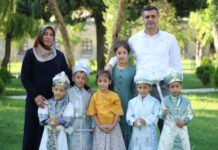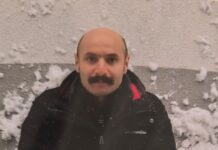A woman arrested a month ago for alleged links to the Gülen movement has requested release from prison, saying she has leukemia and needs proper medical care, the Bold Medya news website reported.
Suna Halis was diagnosed with chronic myeloid leukemia in January 2020. The doctors were able to keep her disease under control with regular screenings and treatment. However, for the treatment to be effective, Halis needs regular medication and check-ups.
Moreover, the treatment required for Halis is only available at university hospitals and can only be provided by specialists.
Halis is currently in western Turkey’s Edirne Prison, notorious for its poor conditions. Inmates are provided with water for only three hours a day, toilet doors are broken and the cells are infested with rats.
Her family has expressed concern that Halis was sent to such a poorly maintained prison despite her health condition.
Halis was working in a private university dormitory affiliated with the movement. She was arrested for the first time two months after a July 15, 2016 coup attempt. At the time Halis was in the first weeks of pregnancy.
In the seventh month of her pregnancy, in March 2017, Halis was sentenced to six years, three months in prison and was released pending appeal.
Immediately after her release Halis’ husband, Ömer Halis, was arrested for financially helping families who had been affected by a post-coup purge. He was also handed down a six year, three month prison sentence. Ömer Halis was released in October 17, pending appeal.
Turkish President Recep Tayyip Erdoğan has been targeting followers of the Gülen movement, a faith-based group inspired by Turkish cleric Fethullah Gülen, since the corruption investigations of December 17-25, 2013, which implicated then-prime minister Erdoğan, his family members and his inner circle.
Dismissing the investigations as a Gülenist coup and conspiracy against his government, Erdoğan designated the movement as a terrorist organization and began to target its members. He intensified the crackdown on the movement following a coup attempt on July 15, 2016 that he accused Gülen of masterminding. Gülen and the movement strongly deny involvement in the abortive putsch or any terrorist activity.
In an interview on YouTube, Ömer Halis said they had endured a lot of difficulties as a family and just wanted to live in peace with their two children. “We have been living with the fear of arrest for years,” he said. “Each morning I wake up as a free man I thank God that the police haven’t come to take me. But now my wife is in prison, and we are completely distraught.”
Turkish authorities have denied political prisoners, even those with critical illnesses, release from prison so they can at least seek proper treatment. Human rights activists and opposition politicians have frequently criticized authorities for not releasing critically ill prisoners.
Peoples’ Democratic Party (HDP) deputy Ömer Faruk Gergerlioğlu said ill prisoners were not released until they were at the point of no return. He claimed that prisoners did not have access to proper healthcare facilities such as hospitals and clinics.















